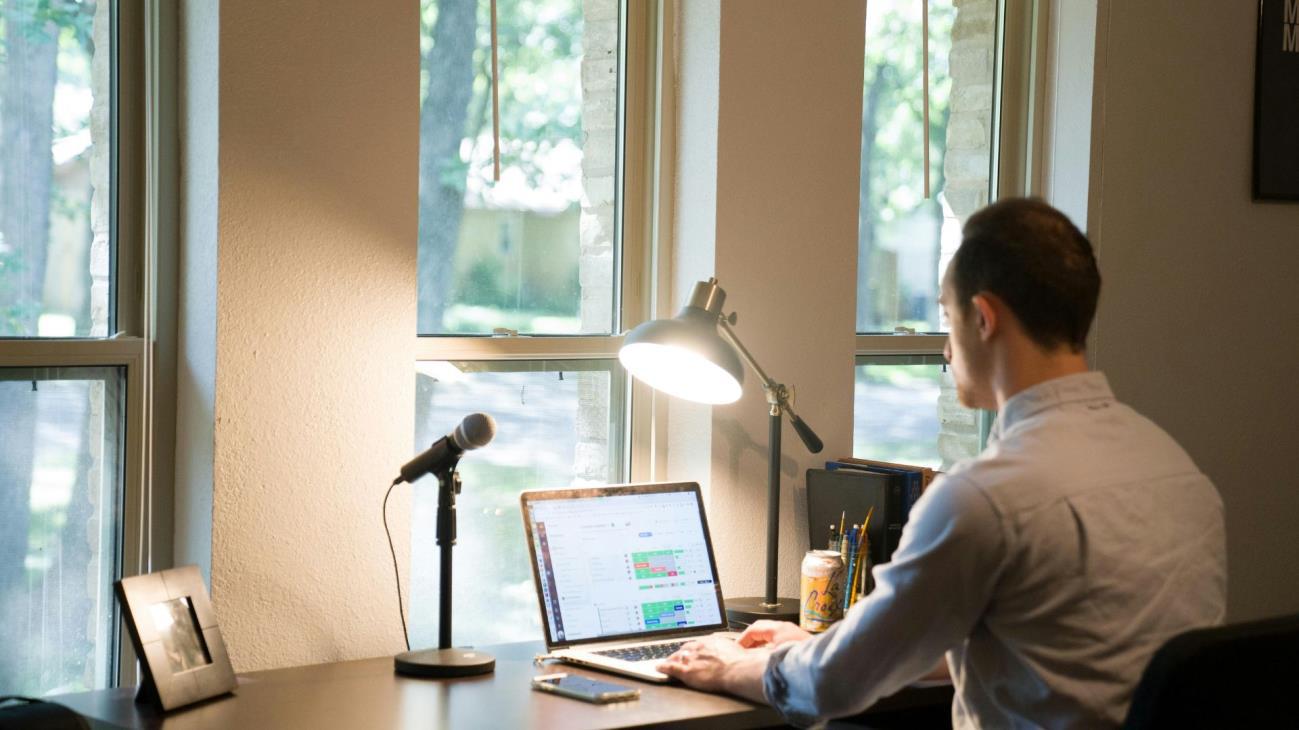Since the COVID-19 pandemic, many businesses have benefitted from remote work as they allowed their full-time employees to work from home. However, years after the peak of the pandemic, many companies are looking to bring workers back into the office.
The debate over remote work has escalated. Remote workers don’t want to return to the office, even though their bosses do. While there are many upsides to remote work for both employer and employee, there are some major challenges and concerns as well.
The Struggle of Being Isolated

One of the biggest issues both employers and employees have with remote work is isolation. Many feel that, as they work from home full time, they are fully isolated from the rest of their colleagues.
For people who are used to working in an office environment, this can be quite difficult to adjust to. To get the daily conversations they used to, many are having to go out to coffee shops or community events to try to fight this feeling of isolation.
Not Creating Work Friendships

As remote workers aren’t working around their coworkers, they’re also not forming the work friendships that they normally would. Many people spend most of their day at their jobs working. As a result, close friends can be formed through occupations.
Remote work doesn’t necessarily allow this to happen, as it’s harder to form friendships over video or message.
The Lack of Creative Spark From the Office

Even those who love remote work admit that they don’t get the creative sparks they used to, thanks to in-person meetings or collaborations. Sometimes, you need others around to work off of your ideas. Great ideas can come from these collaborations.
Creating these creative sparks through Zooms or team meetings can feel rare to many. This can affect both bosses and their employees.
Bosses Cannot Measure Employees’ Work

When employees used to work in the office, bosses would have an easy way to measure employees’ work efforts and productivity. They would be able to check in daily and see how things are going.
With remote work, this isn’t necessarily possible. Though messages between boss and employee can still be sent daily, an online message isn’t the same as a quick office pop-in conversation.
Employees May Not Get Promoted

As bosses cannot accurately measure an employee’s overall performance, many remote workers have felt that they are being overlooked for advancements and promotions.
According to a recent study, remote workers are 31% less likely to be promoted when compared to workers in an office. Even though remote workers may be doing the same exact work as their in-office colleagues, stay-at-home employees often have a hard time advancing in their careers.
More Remote Workers Are Laid Off

Unfortunately, remote workers are also more likely to be laid off than their in-office peers. New data has shown that stay-at-home employees were 35% more likely to be laid off than both in-office and hybrid workers.
This stat also claims that many employers would choose to lay off a remote employee rather than an in-office one — even if there’s no major difference between the two.
Eating Habits Are Negatively Changing

Employees who work from home have noticed that their eating habits haven’t been as healthy as they could be. Because they no longer have to wake up early and get ready before commuting, some remote workers are waking up right before their shift begins.
This doesn’t give them enough time to accurately prepare for the day. It also doesn’t allow them the chance to begin their day with a healthy breakfast.
Working Out Becomes Harder

Remote workers’ health has also declined, thanks to their stay-at-home jobs. For many, working out and keeping up with an active lifestyle has become incredibly difficult.
Because of this, many statistics have shown that remote work has become a risk to employees’ physical health. Some employees have started to better take care of themselves — but only because they’ve finally noticed how inactive they’ve become.
Family Members Don’t Understand Remote Work

Across the board, remote workers have claimed that many have a bias against them — even their own family members. Some family members haven’t taken their jobs seriously because they stay at home. As a result, remote workers feel that many are demeaning to them.
Even those who say they understand remote work have interfered with stay-at-home workers. For example, many have claimed that their family members will walk into their office while they’re working to chat or hang out, even though the employee is busy.
Mornings Are No Longer Peaceful

Employees who used to work in an office would efficiently design their mornings before work. After all, you have to wake up early enough to get ready and commute to the office. Extra time is often needed.
Now, remote workers are struggling to create those peaceful mornings. Often, they aren’t waking up early enough before work to have this extra time. As a result, they feel that their sleep schedule is messed up — and that their entire life is now dedicated to working.
Employees Struggle to Live Away From Work

Since remote workers are working from the comfort of their own homes, they often can’t turn off their “work mode.” Normally, this was done once they left their office. Now, when their office is their home, this can become difficult.
This has subsequently left many remote workers feeling that they cannot enjoy the rest of their night — or their life. They’re too busy checking emails when they should be putting work aside.

